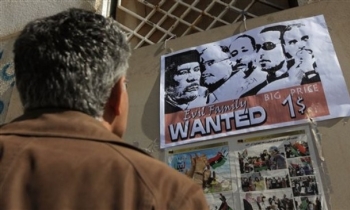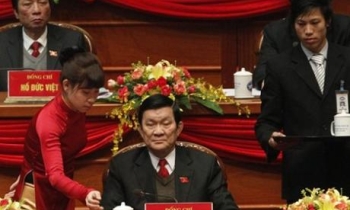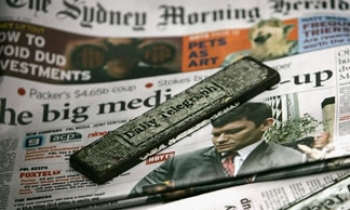SAN DIEGO--Hu Shuli, editor of the Beijing-based Caijing Magazine, says without fail she is asked some version of the same question each time she travels abroad. "What is taboo for Chinese journalists?"
"Foreign journalists pay too much attention to what is taboo in China" Hu says. "We don't pay attention to it. There are so many important news stories. If a story's important enough, we'll find a way to talk about it."
Under Hu's stewardship, Caijing has successfully navigated the space between censorship and complete press freedom in China. The magazine, which has lead the way in the transformation of the media's role in China by challenging the boundaries of business journalism, is considered a must-read for politicians, investors and financial market leaders.
Caijing, which directly translates to "Finance and Economy," was founded in 1998. In the early 1990s, the Chinese government opened the print media sector to private investors. Though all media is still legally government-owned, many newspapers and magazines are now commercially driven and no longer dependent on government funding. Business journalism became a popular genre to cater to the country's growing business class, and as a result garnered great investment. After the Tiananmen Square movement in 1989, many idealistic journalists also moved into business journalism, one of the few open forums in print media.
Caijing ostensibly focuses on financial and business issues, but it uses this as a way to probe important topics that relate to broader political and social issues such as government corruption, corporate governance, environmental pollution and economic reforms, says Tai Ming Cheung, China research follow with the Institute on Global Conflict and Cooperation at the University of California at San Diego.
"In a transitional country like China, all business issues are related to political issues, and in the end, every important political and social issue has relevance to business," Hu says.
In Oct. 2000, Caijing published a cover story that exposed corporate manipulation of China's securities market. In Feb. 2003, Caijing published one of the earliest reports on SARS. A commentary criticizing the minister of health and the mayor of Beijing for the lack of transparency appeared in the magazine's April 20, 2003, issue. That same day, both officials were fired.
Last year, the magazine reported on fake avian flu vaccines that failed to prevent the deadly spread of the virus through a major poultry-raising region. In a commentary in the magazine's Nov. 14, 2005, issue, Hu called for the Communist Party to provide more welfare for farmers and improve China's agricultural insurance system.
"Caijing showed people how far you could push the envelope in terms of permissible reporting by wrapping it in the 'financial reporting' cloak," says Barry Naughton, an economist who specializes in China and a professor of Chinese and International Affairs at the University of California at San Diego.
"It produced an enormous amount of genuine quality journalism that completely redefined good reporting," Naughton says.
Though Caijing's readership remains relatively limited (in 2004, the magazine put its circulation at 220,000 copies per issue), says Cheung, it reaches the most cosmopolitan and affluent groups in the country as well as to foreign business executives who live or travel to China.
But Caijing's aggressive reporting has upset some in the business community. For instance, telecommunications company Shenzhen Fountain Corporation (Shiji Xinyuan) sued Caijing Magazine for "false reporting" when the magazine reported that the company had manipulated its financial statements. Caijing lost the case because a small part of the article could not be proven true, though the majority of the article was accurate.
Such setbacks and the controlled media environment in China call Caijing's survival into question. Media watchers have questioned whether Hu has privileged connections that have kept her magazine afloat, a speculation that she vehemently denies.
"Caijing will undoubtedly face a bumpy road as it will no doubt antagonize powerful interest groups with its reporting," says UCSD's Cheung. "But as long as the magazine knows where the serious red lines are that it should not cross -- avoiding too much political reporting or exposing the business activities of top leaders, for example -- these challenges will not be life-threatening."
"A lot of times we don't think what we are doing is risky, but at the same time, some risks are worth taking," Hu says.
Hu says she often confers with managing editor Wang Shou to see if a risky story was worth doing.
"Usually, the braver one will convince the less brave one," she says. "Maybe it's because we are more optimistic about progress in China."
Says Wang, "Maybe it's because we are all risk takers."









